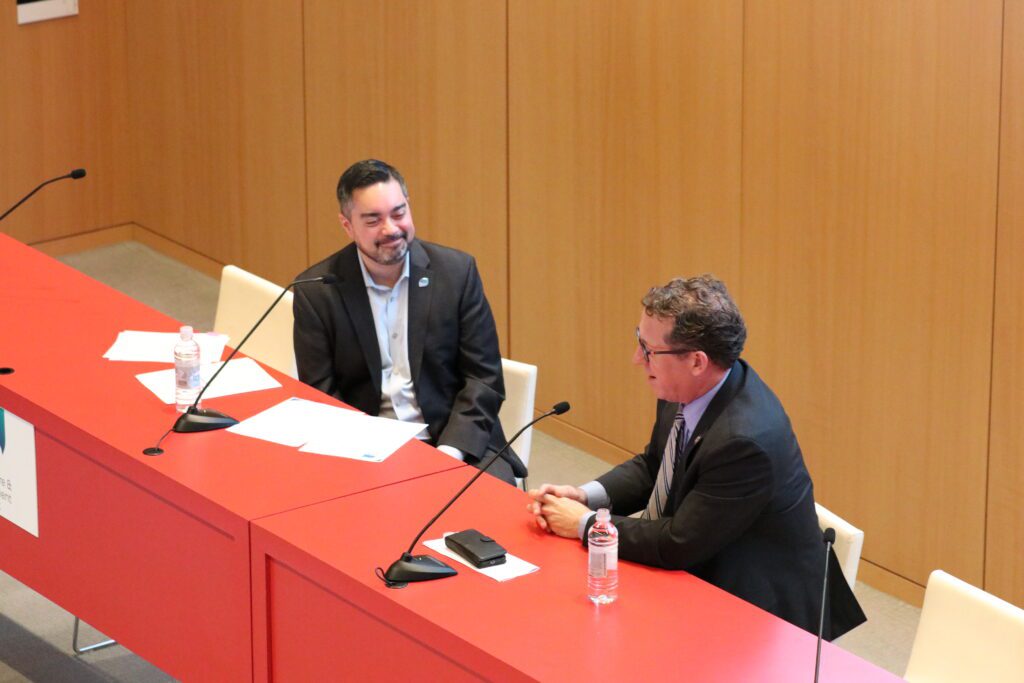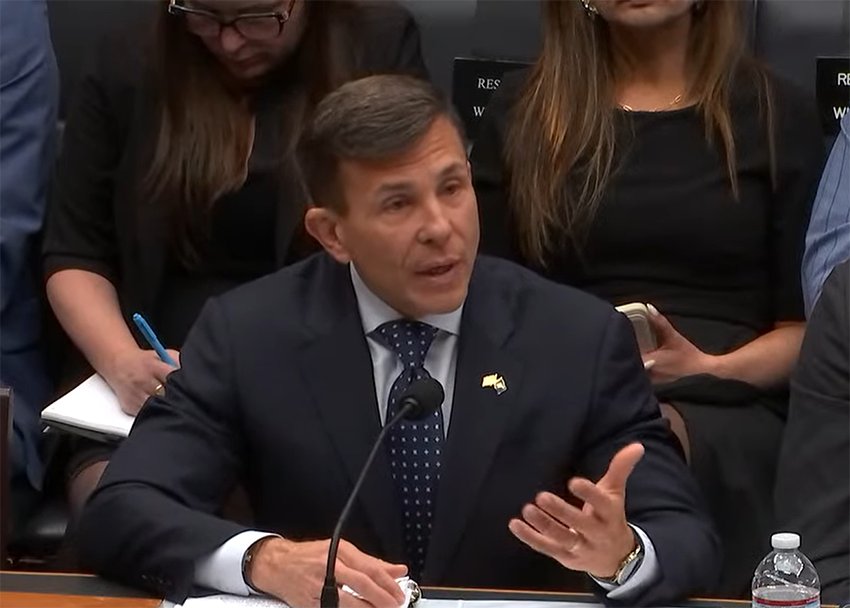John Torres, Senior Director, Federal Government Relations – Agriculture and Environment at the Biotechnology Innovation Organization (BIO), was recently appointed to the U.S. Department of Agriculture (USDA) Agricultural Technical Advisory Committee (ATAC) for Trade in Grains, Feed, Oilseeds, and Planting Seeds. He will serve on the ATAC until 2028. Bio.News caught up with Torres to discuss his appointment and key issues in agricultural trade.
“The [Agricultural Technical Advisory] Committee is established to advise, consult with and make recommendations to both the U.S. Secretary of Agriculture and the United States Trade Representative on matters that are [of] concern to the United States and to our consumers, producers, processors and traders of grain, feed, oil seeds and planting seeds,” Torres told Bio.News.
According to USDA, Congress established this system of advisory committees as a way of integrating the perspectives and insights of stakeholders in the agricultural sector regarding U.S. trade policy.
“The Committee also works to provide advisory opinions, reports, or information to the U.S. government, to the Secretary or to the Trade Representative on those [trade policy] issues,” Torres added. Regarding his specific ATAC appointment, Torres explained that, “grains, crops, seeds, , especially those derived from biotechnology, are very highly regulated here in the United States and abroad, where we try to do business. And so we’re here to provide ideas, opinions and thought leadership in this sector as the US engages in trade policy work around the world.”
Policy priorities in the grains, feed, and seeds space
A key issue of interest is non-tariff trade barriers.
“Sanitary and phytosanitary (SPS) measures, or the health implications of seeds, oil seeds, and planting seeds … are often codified in regulation in every country that approves product for trade including the World Trade Organization (WTO),” said Torres. “Those sanitary and phytosanitary measures, while extremely important to protect consumers, animals and plants from pests and disease – are often a tool used by many countries to establish what we call non-tariff trade barriers.”
“Countries will often come up with unscientific reasons to prevent a particular product from entering their borders, and we often view that as a retaliatory measure that frequently has nothing to do with that product being traded or anything to do with agriculture.”
USMCA and agricultural trade policy
Conversation on trade policy and the science – or lack thereof – behind it turned to the U.S. Mexico Canada Agreement (USMCA) in light of the Mexican government’s proposed ban of GMO corn under President Andres Manuel Lopez Obrador.
“We are now in our second major free trade agreement with Mexico … [and yet] Mexico recently decided to enact some decrees to limit trade in biotech corn with the United States. We view that as a violation of the SPS terms of the USMCA trade agreement,” Torres said. “We’re working to resolve those issues right now through an official dispute initiated by the U.S. government.”
As for the significance of Mexico’s actions, Torres said it had to do with setting a precedent.
“You’ve got a major economy, a major global player, like the country of Mexico, making trade decisions that are not science-based at all and fly in the face of the rules that all three countries committed to abide by in the trade agreement. Mexico’s egregious actions opens the door for other trading partners across the world to do the same thing, to make non-science-based, non-rules-based decisions on trade as an excuse to engage in isolationist and protectionist trade activity,” Torres stated. “We want to work closely with Mexico so that the correct precedent is set, [which] is that if there’s a problem with our products, let’s make sure that that problem is firmly rooted in science versus ideas that can be very subjective in nature.”

Looking ahead to October 1 when Mexican President-elect Claudia Sheinbaum takes power, Torres said, “We’re hoping that [the Mexican government is] open to reexamining that [GMO ban] decree to make sure that we maintain science and rules-based free trade between both of our countries.”
The 2024 U.S. presidential election and beyond
“President Biden is not running for reelection. So whether it’s a Harris administration or a Trump administration, this advisory committee will have the responsibility of advising a new administration on … [agricultural trade policy] issues … what our approach historically has been, and what we believe the right approach is going forward with countries like Mexico and others is to make sure that we keep the trade doors open,” Torres told Bio.News.
In 2026, there will be a six-year review of the USMCA agreement between the governments of the United States, Mexico, and Canada. “We’re hoping that six-year review with two fresh administrations in the U.S. and Mexico will provide opportunities for us to find more solutions to where we see differences right now,” Torres said.
A farm kid from Ohio
The work is personal, said Torres. “I’m a farm kid from Ohio,” said Torres. “I grew up in agriculture. I grew up in the farming community.”
Torres hopes that we can continue to see future generations of farmers who will “farm that beautiful farmland in the Midwest or wherever in the country they might be, so that we can not only provide great livelihoods for people living in rural America, but maintain food security for us, and for people in need of safe, affordable and nutritious food around the world.”
“That’s where it goes back to for me, it’s that rural upbringing that keeps me going to do this type of work. And BIO has been a great place for me to continue it.”



